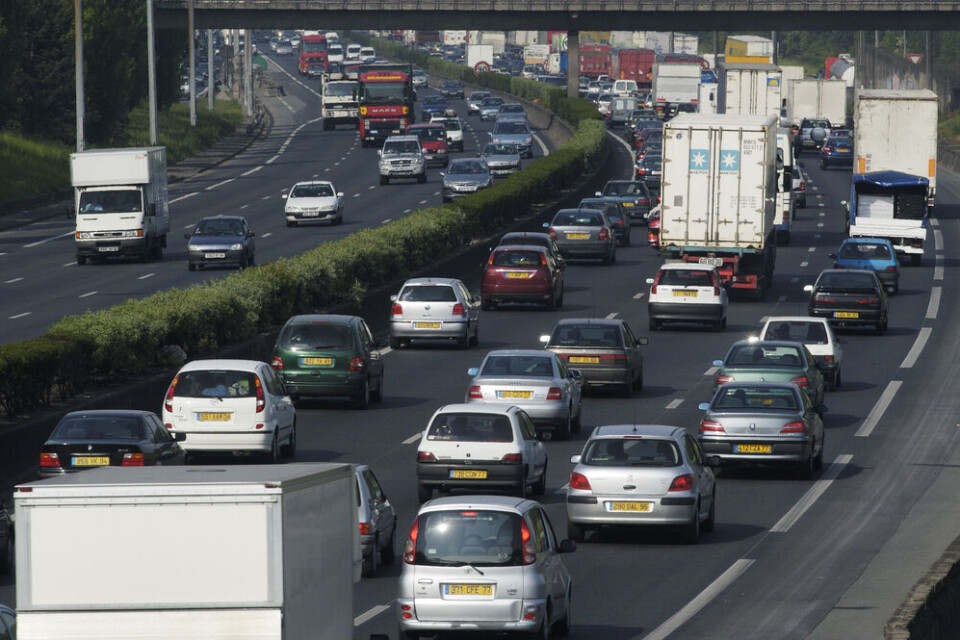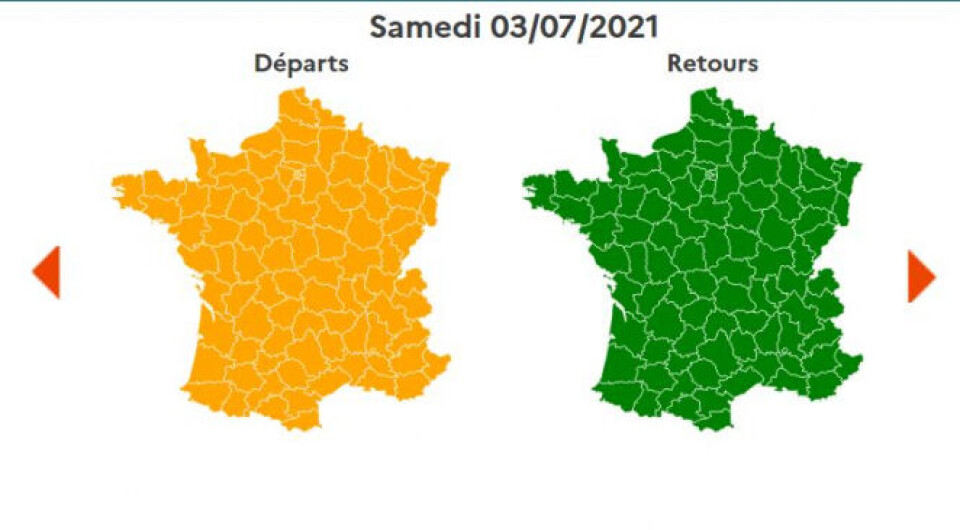-
Many Société Générale customers to be charged additional fees from April
There is some good news for international banking and instant transfers, however
-
Why gas prices in France are rising in April - and by how much
It comes after six consecutive monthly rises. Try these tips to reduce your bills
-
New notaire data suggests easing of Paris property crisis
Property experts have talked of ‘easing pressure’ and ‘breathing space’ after a four-year slump
Traffic alerts this weekend as holiday season starts across France
All of metropolitan France is on amber traffic alert for roads in the direction of resorts this Saturday, meaning that circulation will be difficult

Amber traffic alerts are in place across France this Friday and Saturday (July 2 and 3) in the direction of resorts, as holidaymakers hit the road in droves, the Bison Futé traffic monitoring service shows.
Amber alert means that traffic circulation is difficult.
Areas set to experience particular stress include in and leaving the Ile-de-France region, specifically the A6 between Paris and Lyon, and the A10 between Paris and Bordeaux.
Traffic jams are expected Friday morning, potentially worsening into the afternoon, especially on the Périphérique, as travellers get caught up in rush hour traffic.
Roads will remain busy on Saturday, with all departments in France flagged as amber by Bison Futé. Drivers are therefore being advised to avoid major urban areas or aim to leave or cross them before 08:00.
Other recommendations include avoiding the A7 (between Lyon and Orange) and the A43 (between Lyon and Chambery).

The traffic situation should return to normal come Sunday, but Bison Futé also warns that the increase in traffic may impact the Tour de France in the Alpes du Nord.
August is usually the busiest month for roads in France, but this year there could be more traffic in July, news channel BFM TV reported.
This is because Covid-related restrictions have pushed June travel plans back, while the worry of more restrictions being brought in later has encouraged people to set off as soon as they can.
However, Christophe Marchais, Deputy Director of ADN Tourisme (the National Federation of Institutional Tourism Organisations) estimates that the numbers of holidaymakers departing in July and in August will be relatively equal, which has its advantages. "You'll have a lot less heavy traffic at a given point at any given time” he said.
If you are planning to drive in France this summer, you can check your route using the Bison Futé website, which provides daily colour-coded traffic forecasts. Click on the coloured maps on the homepage to reveal those areas experiencing particular traffic intensity and between what times specifically.
Other useful driving information:
Motorway speed limits
130 km/h in good conditions
110 km/h when it is raining
110 km/h for holders of provisional licences
90 km/h for vehicles towing a trailer
50 km/h when visibility is less than 50m due to fog
A minimum speed limit of 80km/h also applies in the left lane (unless you have a valid reason for going below this speed).
Speed camera tolerances
If you find yourself issued with a speeding ticket, it’s worth familiarising yourself with the margins of error for static and mobile speed cameras.
Static cameras: 5km/h on roads up to 100km/h, or 5% on roads over 100km/h
Mobile cameras: 10km/h on roads up to 100km/h, or 10% on roads over 100km/h
Read more:
Know the rules in case your car breaks down on a French motorway
Holiday bookings in France catching up post-pandemic
France strengthens its Covid-19 defences for summer tourist season
How to compare prices of petrol or diesel at stations across France
























